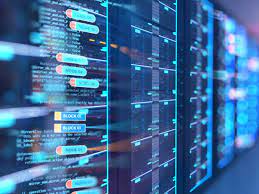Source: beckershospitalreview.com
New digital health technologies and increased awareness about public health due to the COVID-19 pandemic may pave the way for a fundamental shift in healthcare data privacy, according to The Wall Street Journal.
While Congress enacted HIPAA in 1996 to protect the privacy and disclosure of patient health data, technology has advanced rapidly since then with widespread transition from paper records to EHRs. Further, the law applies to patient data in the healthcare system, leaving uncertainty around its hold on tech companies that offer health-related services via apps and sensors.
Here are six things to know about the potential future of health data privacy in the U.S., according to the report.
1. Synthetic medical data, or de-identified data generated from real reports, may be used more for research as opposed to identifiable patient records and information since it is difficult to obtain due to privacy and ethical concerns.
2. Health researchers predict a future with smart homes, which feature technologies like mirrors that detect skin and heart conditions, mattresses that check vital signs and toilet seats that capture blood pressure. However, these types of bodily monitoring technologies may not be subject to HIPAA regulation if the companies developing the devices are outside the healthcare system.
3. Big data mining by tech giants including Google, Microsoft and Amazon will continue; Google has contracts with some hospital systems that allow the company to access millions of personally identifiable health records without patient input. Google uses the data to train machine learning algorithms to recognize clinical data patterns and said its efforts are not connected to its advertising business, but lawmakers, patients and physicians have expressed concerns that the data could be used improperly.
4. “Emergent medical data,” or millions of digital traces from social media accounts and devices that are plugged into algorithms to predict health outcomes, may also expand from data mining, said Mason Marks, PhD, a health law professor at Gonzaga University, adding that the concept is largely unregulated and could be used for consumer profiling or marketing purposes.
5. The COVID-19 pandemic may spur an increase in “solidarity-based healthcare,” which steers away from individual privacy rights and puts more attention on public health, said Nicholas Terry, executive director of Indiana University’s law and health center. This could lift privacy regulations around medical research and give scientists more access to personal health data.
6. Consumers may also gain more control over how their data is used and could be given the option of participating in different health surveillance programs or deciding if they want their information on social media platforms used for other purposes such as targeted advertising.
